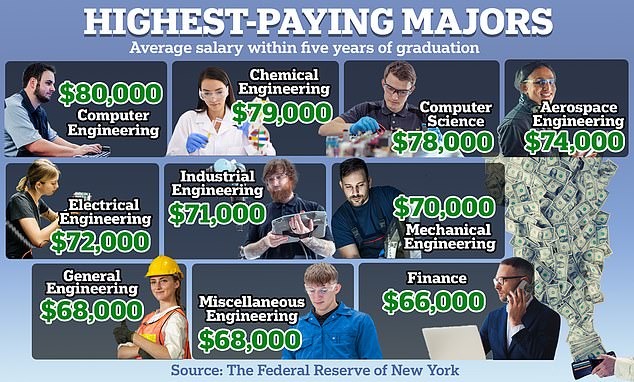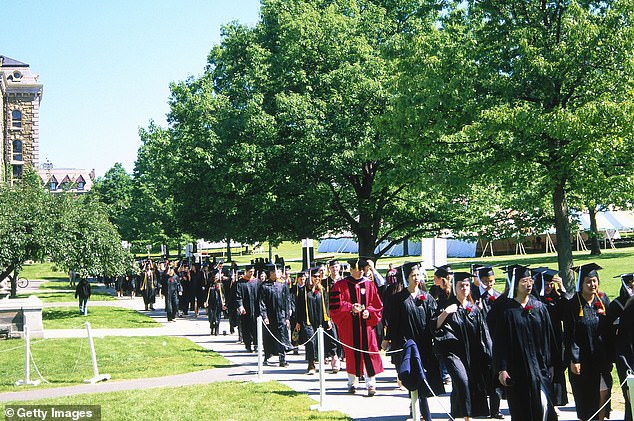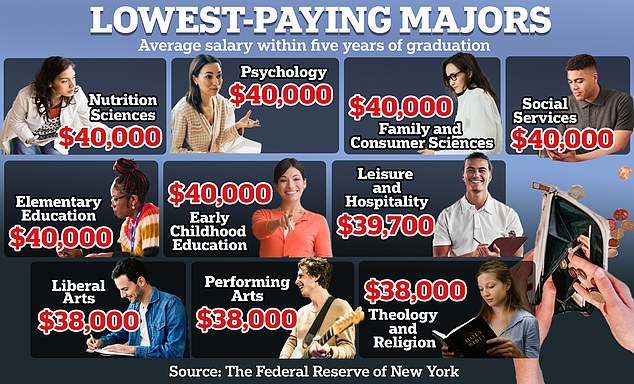Almost all majors that lead to the highest starting salaries are in engineering.
Graduates who studied computer engineering, aerospace engineering and electrical engineering earned an average annual salary of more than $70,000 in the five years after completing their studies.
This is more than twice the salary of those who followed the lowest paid specializations, according to a study by the Federal Reserve Bank of New York.
This comes a week after a separate study showed that most college degrees offer better returns than the stock market.
In the new report, graduates in theology, liberal arts, hospitality, psychology and anthropology all earned $40,000 or less in the same five years. This is below the median personal income in the United States, which was $40,480 in 2022.
(Scroll down for the full list of 75 majors and their salaries)

Almost all majors that generated the highest salaries for graduates were in engineering


The average college graduate earned more than the median income right out of college
But the good news for most college graduates is that they will, on average, earn more than the U.S. median income right out of college.
Overall, the average graduate had a starting salary of $50,000. By the time they were “mid-career” – or between the ages of 35 and 45 – they were making $80,000.
Even graduates who majored in the field with the lowest mid-career salary, early childhood education, earned an average of $48,000 per year.
In contrast, chemical engineering earned the most for mid-career graduates, on average, at $133,000.
In general, those who earned the most money right out of college continued to earn more as they advanced in their careers, with a few exceptions.
Education majors had starting salaries above $40,000, but their mid-career salaries tended to be the lowest at less than $60,000.
Some companies are changing direction by requiring degrees – after Walmart, Accenture and IBM took the lead.
Nearly half of U.S. companies plan to drop the bachelor’s degree requirement for some positions next year, a survey released in November found.
The New York Fed Job market for recent college graduates The study examined the early and mid-career earnings of graduates who studied some 75 specializations.
The data was compiled from the results of the latest 2022 US census.


Graduates in theology, liberal arts, hospitality, psychology and anthropology earned $40,000 or less in the five years after college.
It also took into account the unemployment rate, the “underemployment rate” and the share of advanced degrees for those who followed each specialization.
Art history graduates had the highest unemployment rates at 8 percent, while only 0.2 percent of industrial engineering students were unemployed.
Underemployment occurs when a university graduate has a job that generally does not require a degree. This rate was highest among criminal justice students.
And biochemistry students were the most likely to enroll in postgraduate study: 69% of them had a graduate degree.
Only 9 percent of those who studied construction services continued their education.
A November study found that some companies were changing direction by requiring degrees — after Walmart, Accenture and IBM took the lead.
Nearly half of U.S. companies plan to remove the bachelor’s degree requirement for certain positions next year.
Your browser does not support iframes.

